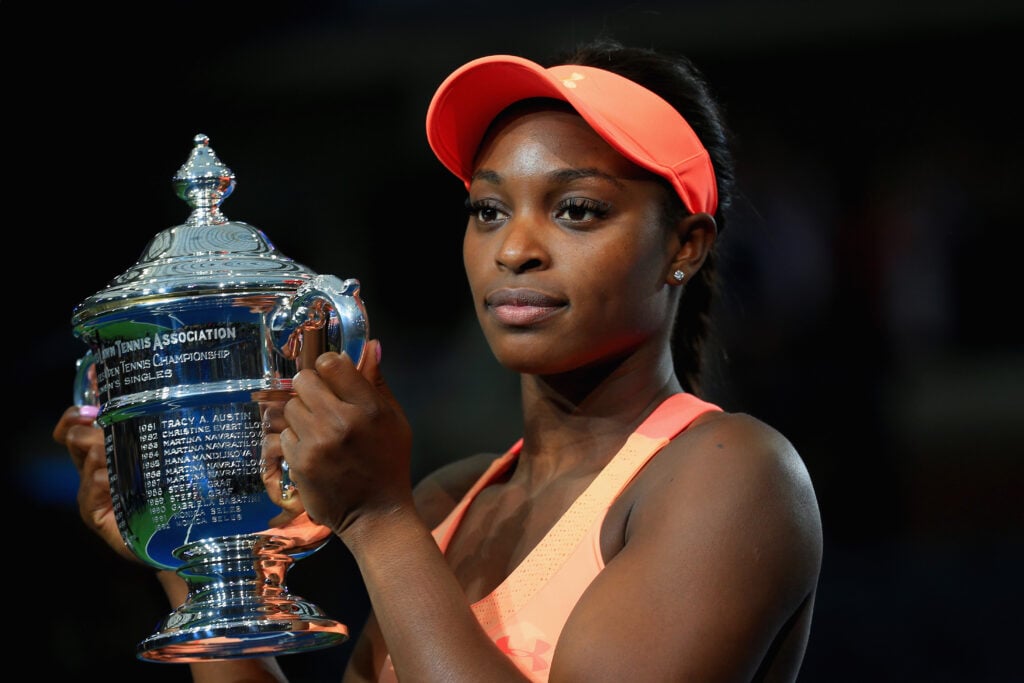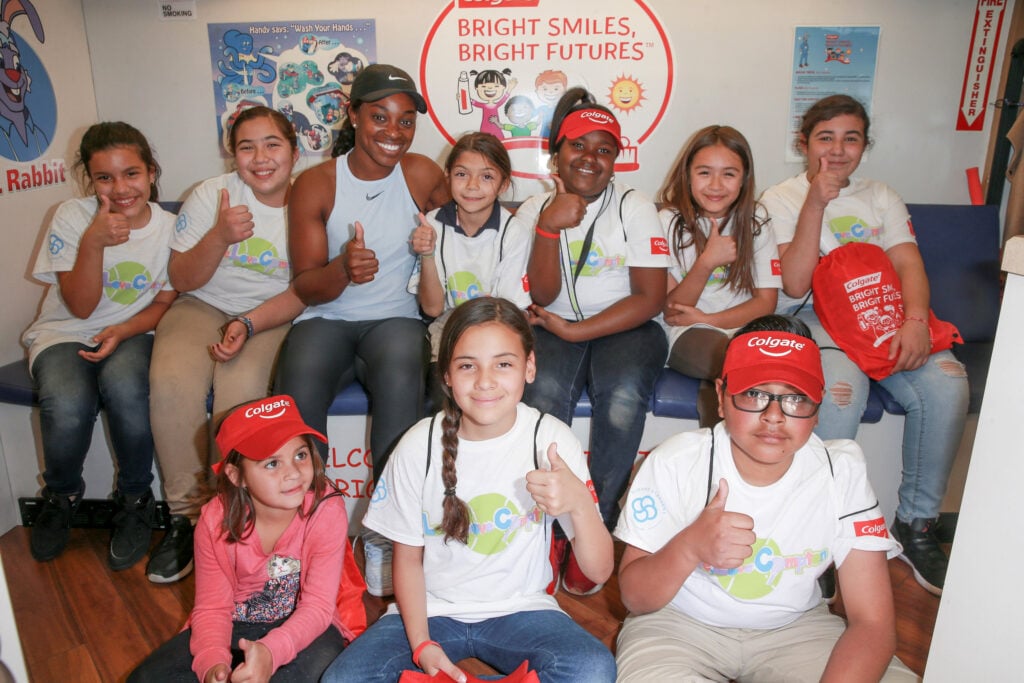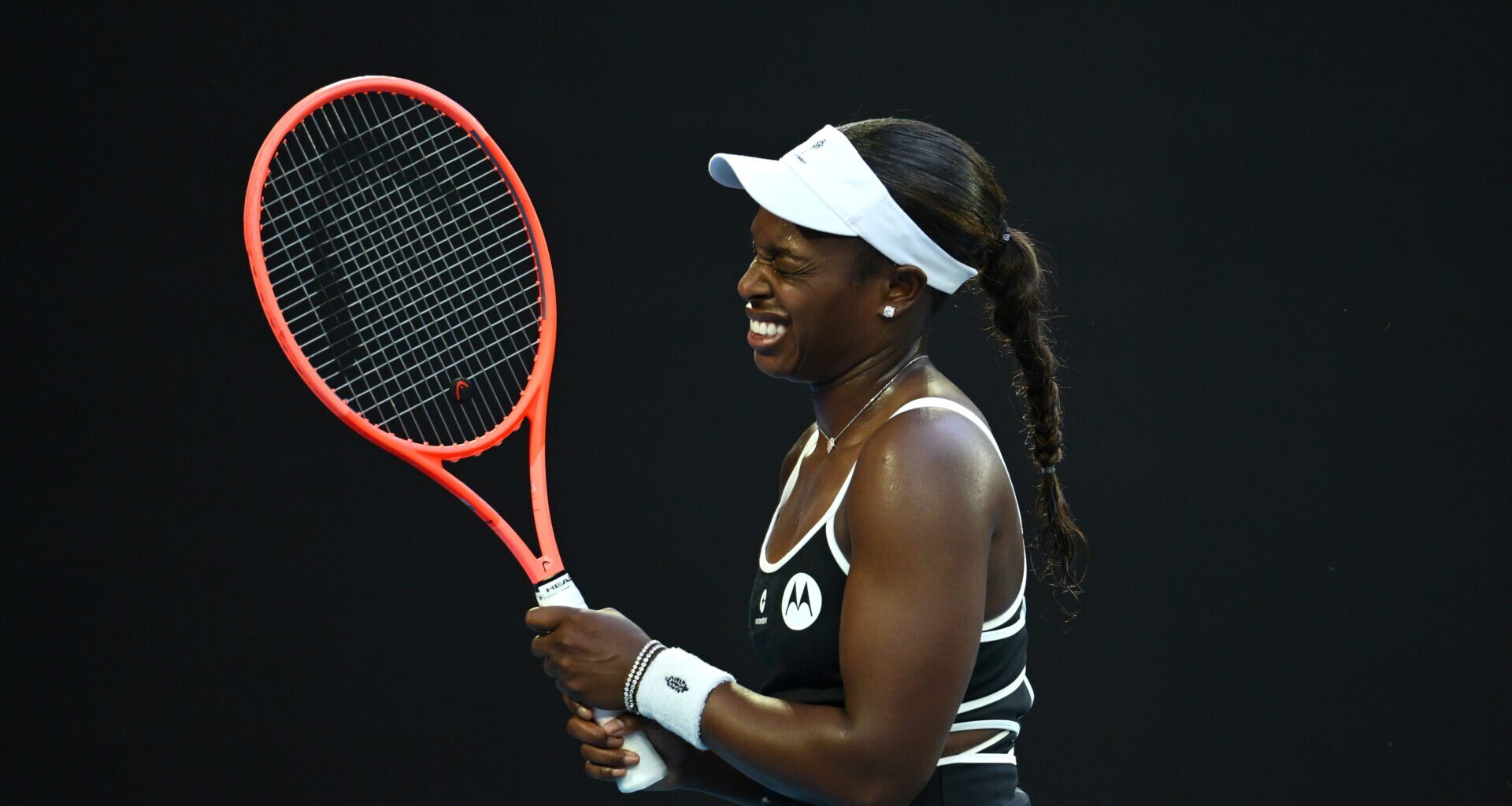Sloane Stephens became the first American woman to win a Grand Slam title after Serena Williams.
Three years after the former world number one’s sixth and final title at Flushing Meadows, Stephens produced a magical run to the final.
In the championship match she comprehensively defeated Madison Keys to become the champion of her home Grand Slam.
But once she achieved this goal, the immediate future became uncertain for the 32-year-old, who was 24 at the time of her Grand Slam success.
 Photo by Chris Trotman/Getty Images for USTASloane Stephens contemplated retirement after winning the 2017 US Open
Photo by Chris Trotman/Getty Images for USTASloane Stephens contemplated retirement after winning the 2017 US Open
Sloane Stephens first came close to winning a Grand Slam when she reached the 2013 Australian Open semifinals.
She lost to Victoria Azarenka, who went on to win the title. Over four years later in 2017, the American advanced to her first major final on home soil.
Stephens produced one of the performances of her career to defeat Venus Williams in the semifinals, before beating Keys 6-3, 6-0 in the final.
This was the greatest moment of Stephens’ career and she fulfilled her dream of winning a major. But after achieving that dream, she found herself asking questions about her future in the game.
“Winning the Slam was incredible but my goal was to win a Slam and I was like if I do this, I’m good. And when it happened I was like ‘what happens after this?’ And I had a complete identity crisis,” Stephens told Whistle’s YouTube channel.
“I was like, ‘do I retire, do I keep playing?’, that’s where a lot of my foundation work came in because I knew that that is what I wanted to do.
“And I knew in my tennis world and my tennis life, I can still hit the ball. But I was just kind of wondering what happens next, right?”
 Photo by Rich Fury/Getty Images for Colgate Bright Smiles, Bright FuturesSloane Stephens says the foundation she set up helped extend her tennis career
Photo by Rich Fury/Getty Images for Colgate Bright Smiles, Bright FuturesSloane Stephens says the foundation she set up helped extend her tennis career
As much as Stephens has made an impact on the tennis court, she is very passionate about making a change off it.
This is why she started the Sloane Stephens Foundation in 2013, to help provide better opportunities for education for young people.
Stephens has since said that forming that foundation to help the next generation was a pivotal factor in the extension of her tennis career.
“Building the foundation was something that I really wanted to do. 2013 is when we started it,” the 2018 French Open runner-up said.
“It’s been something that’s really saved my career in terms of helping me play longer because I’m playing something that’s not just for me.”
“So I think for me the foundation has really kept me going and it’s kept me in the sport more because I want to learn more for the kids; I want to make the best resources and have everything they need to succeed.”
